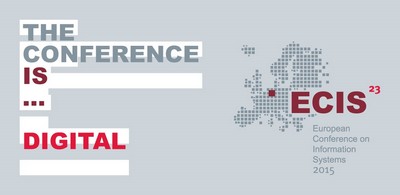DOI
10.18151/7217503
Abstract
The increase usage of collaborative consumption services illustrates a significant shift in modern consumption behaviour. In order to simplify the process of collaborative consumption services, some providers are increasing the integration of IS and in some cases they are eliminating human interaction. We investigate how acceptance of collaborative consumption is affected by the elimination of human interaction. A research model in the context of P2P car-sharing is developed to explain service acceptance through the perspective of car owners. A mental experiment is used to understand the effects of IS integration on service acceptance. Two scenarios are introduced: one with “simple IS integration,” in which human interaction allows trust building between lender and renter, and another with “advanced IS integration,” in which users can open car doors using advanced IS. The analysis of 339 responses of potential adopters suggests that the effect of reduced human interaction through increased IS integration can negatively influence service acceptance. The study also looks at how the negative effect of reduced human interaction competes with the positive effect of increased service usefulness. We contribute to service design research with a model that evaluates benefits and threats of advanced IS integration in the area of collaborative consumption.
Recommended Citation
Trang, Simon; Busse, Sebastian; Schmidt, Johannes; Falk, Tamara; and Marrone, Mauricio, "The Danger of Replacing Human Interaction in IS-driven Collaborative Consumption Services" (2015). ECIS 2015 Completed Research Papers. Paper 183.
ISBN 978-3-00-050284-2
https://aisel.aisnet.org/ecis2015_cr/183


